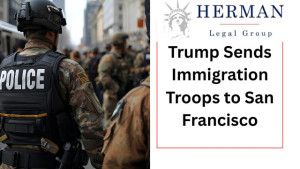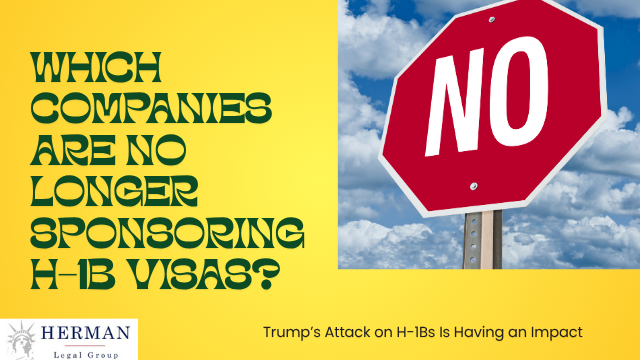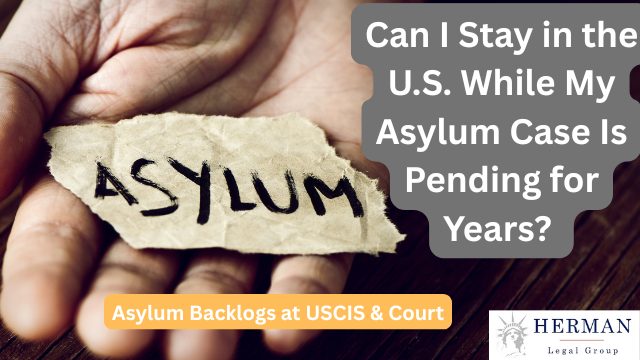By Richard T. Herman
October 22, 2025 – San Francisco
At a glance
- Donald Trump’s administration has dispatched more than 100 federal immigration-enforcement agents to the Bay Area as of October 22, 2025, with indications that a further deployment of the National Guard into San Francisco may be imminent. Trump told Fox News about his intention to deploy federal agents and National Guard troops to San Francisco. In addition to the National Guard, there is discussion about the possible arrival of federal troops and national guard soldiers, highlighting the distinction between state-controlled and federally deployed forces. The Trump administration is planning to send dozens of federal agents to San Francisco for immigration and anti-crime enforcement efforts, with federal agents heading to San Francisco as part of the operation.
- The city and state — led by Gavin Newsom and Rob Bonta — are preparing litigation and broad push-back. California Governor Gavin Newsom has warned that California will immediately challenge any federal deployment of military forces in San Francisco. The Insurrection Act is being discussed as a legal mechanism that could be invoked to justify such federal intervention under the federal administration’s authority.
- Immigration law firms in San Francisco are bracing for increased demand; below is a comparison of key firms (including my own firm, Herman Legal Group (“HLG”)). During this period, President Trump’s use of executive authority has had a significant impact on city governments and local communities.
- Key legal and practical questions: What is the basis for deployment? What rights do immigrants have? How should counsel advise?
- Need to Know: For immigrants in San Francisco and the Bay Area, this shift means heightened enforcement risk, evolving legal strategies, and a more complex landscape for representation.
1. News overview & context
Fast Fact: On October 22, 2025, local media reported over 100 federal immigration-enforcement agents, including border patrol agents, are en route to the Bay Area, staging at the Coast Guard Base Alameda. The Coast Guard’s operations are supporting immigration enforcement efforts in coordination with other federal law enforcement agencies.
According to a Coast Guard spokesperson, “The Coast Guard is providing logistical and operational support to DHS agencies as part of our ongoing commitment to border security and public safety.” The involvement of DHS agencies continues as part of ongoing federal operations in the Bay Area.
Expert Tip: If you’re a member of the immigrant community, have emergency contact with a trusted immigration attorney now — the operation is active, and timing matters.

What triggered this
Trump has repeatedly stated his intention to send troops and enforcement agents, including national guard members, into “sanctuary” jurisdictions, naming San Francisco, citing the federal administration’s authority to enforce immigration laws and maintain public safety. The threat of civil unrest is being cited as a justification for this federal intervention.
State and local officials argue the deployment is politically motivated and legally dubious: California AG Bonta said troops, including the California National Guard, cannot be used for domestic law enforcement absent an invasion or insurrection, highlighting the legal status of the California National Guard under both state and federal law. Critics further argue that the administration is intentionally creating a climate of fear or unrest to justify these actions.
The 1878 Posse Comitatus Act limits the use of federal military forces for civilian law enforcement operations, and prior deployments (e.g., in Los Angeles) have already been found by a federal judge to contravene that law. Federal laws, including the Posse Comitatus Act and related statutory authority, serve as the legal basis for the deployment of federal agents and National Guard troops. However, the Supreme Court recently overturned a federal court order that had protected Los Angeles residents from certain immigration enforcement tactics, such as immigration raids, potentially complicating legal challenges.
Federal court rulings have previously blocked the deployment of National Guard troops in cities like Chicago, indicating potential legal challenges to Trump’s plans.
Key Insight: Role of federal agents
While termed an “immigration enforcement operation,” this deployment may function as a precursor or justification to a broader military/Guard presence — raising constitutional and civil-rights concerns. Critics argue that these tactics follow Stephen Miller’s authoritarian playbook, designed to impose strict control and incite fear within immigrant communities.
Those targeted by these enforcement operations also face an increased risk of immigration detention, with concerns about the conditions and legal issues surrounding such detention facilities.
Fast Fact: On October 22, 2025, local media reported over 100 federal immigration-enforcement agents, including border patrol agents, are en route to the Bay Area, staging at the Coast Guard Base Alameda. Coast Guard Island in the Oakland Estuary is also being used as a staging area for federal immigration operations. The Coast Guard’s operations are supporting immigration enforcement efforts in coordination with other federal law enforcement agencies.
According to a Coast Guard spokesperson, “The Coast Guard is providing logistical and operational support to DHS agencies as part of our ongoing commitment to border security and public safety.” Customs enforcement agents are among those being deployed, and the involvement of DHS law enforcement continues as part of ongoing federal operations in the Bay Area.
Expert Tip: If you’re a member of the immigrant community, have emergency contact with a trusted immigration attorney now — the operation is active, and timing matters.
Federal Involvement and Agencies
The Trump administration’s decision to send federal immigration agents into San Francisco is part of a broader, multi-agency effort to enforce federal immigration laws in so-called sanctuary cities. The Department of Homeland Security (DHS) is at the helm of this operation, coordinating the activities of Customs and Border Protection (CBP), Immigration and Customs Enforcement (ICE), and the Coast Guard. Each agency brings specialized resources to the table: CBP and ICE are leading the charge on immigration enforcement, while the Coast Guard provides logistical support and secure staging at Coast Guard Base Alameda.
This federal intervention is not limited to San Francisco. Similar operations have been launched in other major cities, including Los Angeles and Chicago, as the Trump administration seeks to crack down on undocumented immigrants—particularly those labeled as “worst criminal illegal aliens.” The use of aggressive enforcement tactics, such as deploying masked immigration officials and conducting high-profile raids, has drawn sharp criticism from local leaders, advocacy groups, and legal experts. Critics argue that these tactics are designed to instill fear in immigrant communities, disrupt public safety, and intentionally create chaos as a means to justify further federal intervention.
Observers have noted that these actions align with what some describe as Stephen Miller’s authoritarian playbook, which seeks to invoke chaos and escalate federal involvement in local affairs. The deployment of federal immigration agents—and the looming threat of National Guard troops—has heightened tensions between the federal government and local authorities, with San Francisco Mayor Daniel Lurie and California Gov. Gavin Newsom both pledging to resist what they see as an overreach of federal power. As the Trump administration continues to expand its immigration enforcement operations, the legal and political battles over the limits of federal authority in sanctuary cities like San Francisco are likely to intensify.
Local Response and Concerns
The deployment of federal agents and the looming possibility of National Guard troops in San Francisco have ignited a wave of concern and resistance among city leaders, local law enforcement, and community organizations. San Francisco Mayor Daniel Lurie has been vocal in his condemnation of the Trump administration’s decision, characterizing the move as an attempt to invoke chaos and undermine the city’s longstanding commitment to inclusivity and public safety. Mayor Daniel Lurie has reassured residents that the city will not cooperate with federal immigration enforcement operations, emphasizing that San Francisco’s priority remains the protection and dignity of all its residents.
Local law enforcement agencies, including the San Francisco Police Department, have reiterated their policy of non-cooperation with federal immigration authorities. By refusing to participate in immigration enforcement operations led by the Department of Homeland Security, Customs and Border Protection, and Immigration and Customs Enforcement, local law enforcement aims to maintain trust within the community and ensure that all residents feel safe reporting crimes or seeking assistance, regardless of immigration status.
At the state level, California Governor Gavin Newsom has strongly opposed the federal intervention, promising to pursue every available legal avenue to block the deployment of National Guard troops to San Francisco. The governor has argued that the Trump administration’s actions represent a clear overreach of federal power and threaten to disrupt the social fabric of the city. Legal experts anticipate that any attempt to deploy military personnel for immigration enforcement will face immediate challenges in court, as state and local officials seek to defend California’s values and autonomy.
Community organizations and advocacy groups have also mobilized in response to the federal government’s actions. The American Civil Liberties Union of Northern California has pledged to monitor immigration enforcement operations closely, urging residents to document and report any aggressive enforcement tactics or instances of abuse by federal agents. Grassroots groups are organizing peaceful rallies and know-your-rights workshops, aiming to empower immigrants and allies to respond effectively to federal law enforcement activity.
Coverage by the San Francisco Chronicle has highlighted the scale and intensity of the Trump administration’s crackdown, noting the arrival of Customs and Border Protection agents to support ongoing Immigration and Customs Enforcement operations in the Bay Area. The Chronicle reports that the deployment is likely to face significant resistance from both city officials and the broader community, who are determined to uphold San Francisco’s reputation as a welcoming and diverse city.
As federal immigration enforcement operations continue, the actions of the Department of Homeland Security and its agencies will be under intense scrutiny. The debate over the role of federal law enforcement in local communities is far from settled, and the outcome of this confrontation will have lasting implications for the rights and safety of immigrants in San Francisco and beyond.
2. Features & implications for immigration practice
Features
- Scale & staging: 100+ agents; base of operations at Alameda.
- Jurisdictional friction: City/local law enforcement have not requested this deployment and are objecting. Local law enforcement in San Francisco will not assist federal agents in immigration enforcement operations, according to the city officials’ policies.
- Legal ambiguity: Use of troops vs. agents; law enforcement vs. federal property protection.
- Community impact: Heightened fear among immigrant communities; “know-your-rights” trainings are ramping up.
- Federal forces have also been sent to other Democratic-led cities, including Los Angeles, Portland, and Chicago, as part of a broader enforcement strategy.
Implications for immigration enforcement
- Immigration attorneys must prepare for surge in cases: detentions, removal proceedings, representation for locals in outreach campaigns.
- Firms should update “emergency response” protocols: hotline staffing, language access, coordinating with local rapid-response networks.
- For private-client work: increased urgency for noncitizens to review status, understand rights, ensure representation is in place.
- For firms with citizen clients: possible fallout from enforcement actions could affect household members, mixed-status families, employment risk. Concerns have been raised that increased federal enforcement could prevent immigrant families from accessing essential services.
Important Note:
Even undocumented persons have rights during enforcement operations: e.g., right to remain silent, right to counsel, right to refuse searches without warrant (in many contexts). Counsel must ensure clients are aware.
3. Immigration law-firm comparison in San Francisco
Here’s a comparison chart of four prominent immigration-law firms in San Francisco, including Herman Legal Group.
| Firm | Specialties | Highlights | Ideal for |
|---|---|---|---|
| Herman Legal Group (HLG) | Complex removal defense, mixed-status families, federal litigation | Established with multilingual team and broad immigrant-rights focus. Website example: “Immigration Based Services… Deportation, Exclusion and Removal.” | Clients needing full-service representation and proactive strategy. |
| Law Office of Robert B. Jobe | Family-based immigration, asylum, removal defense | Focused exclusively on immigration for 30+ years in SF; strong in precedent-setting cases. | Clients with removal/defense needs, asylum seekers. |
| Law Offices of Shamieh, Shamieh & Ternieden | Deportation defense including cancellation of removal | Firm explicitly advertises San Francisco deportation defense and local court-knowledge. | Clients who want a firm rooted in SF removal practice. |
| Van Der Hout LLP | Deportation & removal defense + major litigation | Nationally-recognized in removal defense, experienced in high-stakes litigation. | Clients facing very complex, precedent-setting/removal-risk cases. |
Need to Know: Firms vary dramatically in bandwidth and focus. Under the current environment (with heightened enforcement), pick a firm that is both responsive and experienced in crisis contexts.
Expert Tip: Obtain clear fee structures, ask about multilingual capability, and inquire whether the firm stays updated on enforcement trends (such as the new operation in SF).
4. Reviews & client considerations
- Look for peer reviews and client testimonials: responsiveness under pressure matters.
- Check whether the firm engages in community outreach (meaningful under surge conditions).
- Verify whether the firm has litigation capability, because state-federal conflicts may produce novel legal issues.
- Ask: How many cases have resulted from recent federal deployments in Bay Area? What’s your success rate?
Key Insight: In times of enforcement escalation, smaller firms may struggle to keep up — resource capacity becomes a factor.
5. Chart: Lawyer comparison details & links
| Firm | Website / Link | Notes |
|---|---|---|
| Herman Legal Group | HLG Website (see “Immigration Based Services … Deportation, Exclusion and Removal”) (Herman Legal Group) | National firm, multilingual, broad scope. |
| Law Office of Robert B. Jobe | LawOfficeJobe.com(“San Francisco Immigration Lawyer | Bay Area Deportation Attorney”) (jobelaw.com) |
| Shamieh, Shamieh & Ternieden | ShamiehLawSF.com (“San Francisco Deportation Defense Attorneys”) (shamiehlawsf.com) | Local SF-based removal defense specialists. |
| Van Der Hout LLP | vblaw.com (“Deportation And Removal Defense”) (Van Der Hout LLP) | High-stakes removal-defense litigation firm. |
Important Note: Ensure you verify the contact details and confirm current availability, given the surge context.
6. What immigrants and legal counsel should do now
For immigrants
- Need to Know: Keep an attorney’s contact info handy; assume agents may show up in your community.
- Avoid isolation: participate in community legal-rights trainings.
- For mixed-status families: consider securing immigration protections now (adjustments, cancellations, U/V visas) before enforcement escalates.
- Document everything: dates, places, arrests, agent IDs, interactions.
- Know your rights: you may refuse to consent to a search; you may ask for a warrant; you may request counsel.
- Federal agents from the Department of Homeland Security are targeting individuals without proper documentation in cities including San Francisco as part of a broader crackdown.
For legal counsel / firms
- Review and update emergency response protocols: know local rapid-response networks, coordinate with non-profits, prepare hotline staffing.
- Monitor enforcement patterns in Bay Area: which neighborhoods, which operations, which agencies involved.
- Advise clients proactively: especially those with upcoming hearings – stress that the enforcement environment is changing.
- Consider collaborating with other firms or networks to handle surge demand.
- Track legal challenges to deployments: the more precedent you have, the stronger your litigation posture.
Key Insight: The enforcement environment is shifting from occasional raids to semi-militarized operations; legal practice must evolve accordingly.
7. Conclusion
The Trump administration’s move to deploy federal immigration agents — and possibly guard troops — to San Francisco marks a significant escalation in immigration enforcement strategy. Governor Newsom characterized Trump’s deployment plans as part of an authoritarian strategy aimed at creating chaos. San Francisco Mayor Daniel Lurie condemned the impending federal action, stating that the aggressive enforcement tactics instill fear in the community. For practitioners and clients alike, the landscape is shifting rapidly. Representation must now anticipate not just typical removal defence, but large-scale deployment, state-federal friction, and the need for rapid action.
In this environment, selecting the right immigration law firm is essential — you want a firm with the capacity, experience and strategic foresight. At Herman Legal Group, we emphasize readiness, rapid response, and comprehensive client communication. But whatever firm you select, act now: the time for preparation is already here.
⚠️ Disclaimer: This article is for informational purposes only and does not constitute legal advice. If you or someone you know faces immigration enforcement, consult with a licensed immigration attorney immediately.








